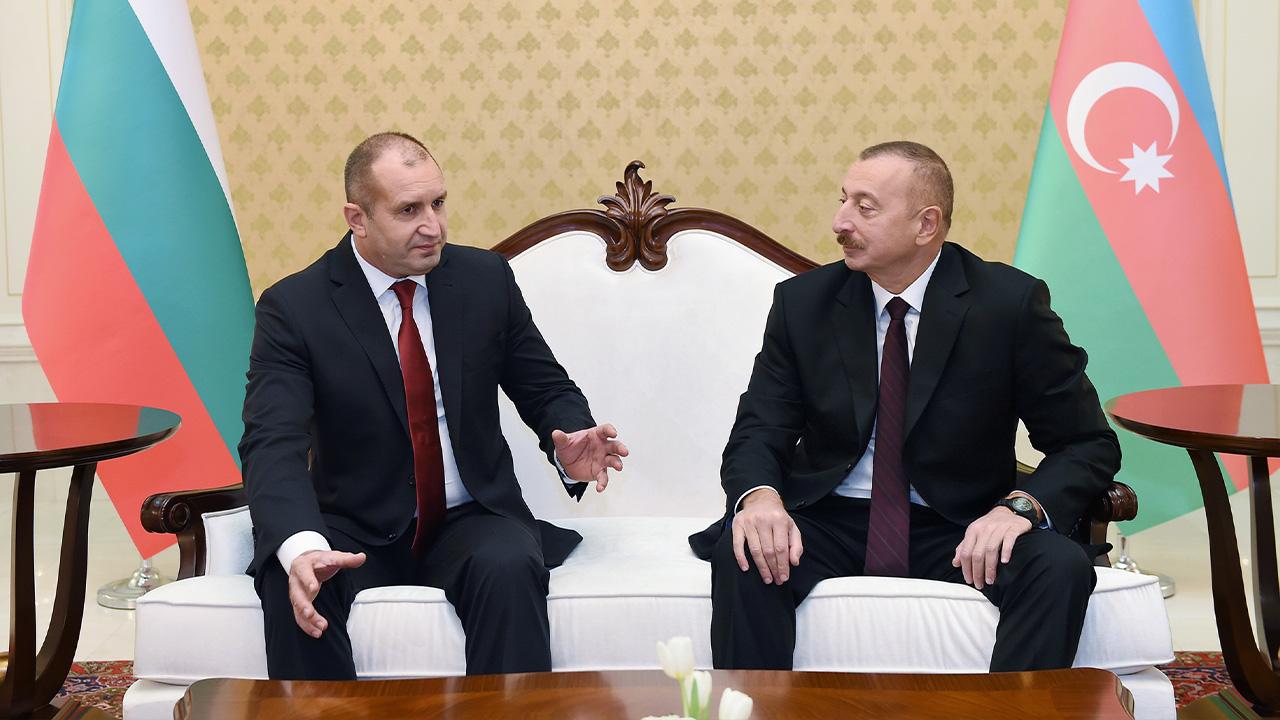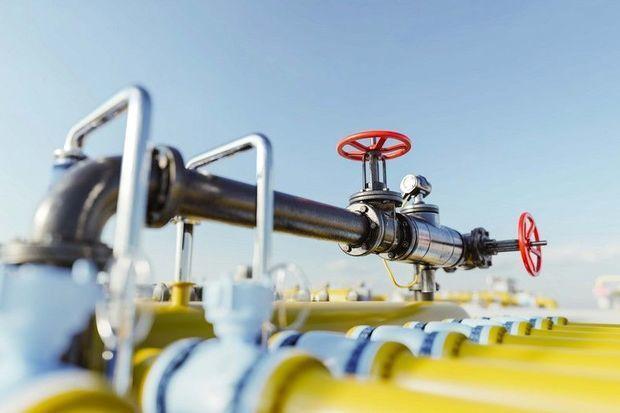Azerbaijan's gas diversification: betting on Bulgarian industry Caliber.Az review
In recent years, Azerbaijan has been steadily expanding its business ties with Southern European countries, relying on the Southern Gas Corridor (SGC) project and a new strategy aimed at exporting "green" electricity generated in Azerbaijan to the Balkan region and neighbouring countries.
Within this framework, Azerbaijani-Bulgarian cooperation in the gas sector is particularly noteworthy, continuously supplemented with new options. Specifically, on the eve of this, the State Oil Company of Azerbaijan (SOCAR) commenced its first deliveries of natural gas directly to Bulgaria's largest industrial enterprises—Assarel Group and M-Gaz—under a recently signed agreement.
The priority of economic cooperation with South European countries for Azerbaijan is quite evident. The Balkan region forms the basis of a long-term export strategy within the Southern Gas Corridor project, and significant agreements have been reached in recent years in the gas sector. Long-term cooperation agreements have been signed between SOCAR and gas transmission operators of Bulgaria, Romania, Hungary, and Slovakia.
In particular, the partnership between Baku and Sofia is built on a solid foundation of mutual respect and partnership. Both countries adhere to similar positions on basic principles of international law and respect for sovereignty. This, combined with the desire of peoples and business circles for mutually beneficial cooperation, promotes successful joint economic initiatives.
The foundation of the Azerbaijani-Bulgarian business track is recognized as the gas cluster: as early as September 2013, the Bulgarian holding company Bulgargaz EAD signed a 25-year contract with the Shah Deniz consortium for annual purchases of one billion cubic meters of natural gas from this Azerbaijani gas condensate field. Subsequently, within the framework of a memorandum between the State Oil Company of Azerbaijan Republic (SOCAR) and the gas transmission company Bulgartransgaz, prospective cooperation was discussed in creating additional routes for natural gas deliveries through Bulgaria to other markets in Southeastern Europe.
As part of this agreement, SOCAR's participation in the Balkan Gas Hub project was also outlined, along with the transit of additional volumes of natural gas via the Southern Gas Corridor beyond the volumes agreed upon in 2013 with the Shah Deniz consortium.
These agreements materialized in December 2020, when the first shipments of Azerbaijani "blue" fuel began to Italy and Greece via the Southern Gas Corridor (SGC), with Bulgaria becoming the next recipient. Starting from January of the following year, through the Kulata-Sidirokastro entry point via the Greek-Bulgarian pipeline with a capacity of 10 million cubic meters of gas per day, Bulgaria received over 300 million cubic meters of gas in 2021. Since October 2022, the Interconnector Greece-Bulgaria (IGB) has been operational, further expanding Azerbaijani gas deliveries not only to the Bulgarian market but also across the broader Southern European region.
As a result, total gas deliveries to the Bulgarian market increased to 600 million cubic meters in 2022, and last year, volumes were even raised to 1.25 billion cubic meters. Following the May meeting this year between the presidents of Azerbaijan and Bulgaria, Ilham Aliyev and Rumen Radev, in Baku, a forecast was announced for gas exports to the Bulgarian market to reach 1.5 billion cubic meters this year. Accordingly, by the end of 2024, Azerbaijan will cover 55% of Bulgaria's natural gas needs.
"Azerbaijani gas is currently exported from the territory of Bulgaria to other neighbouring countries, and the number of these countries will certainly increase in the years ahead," President Ilham Aliyev stated in a press release. "This is a tangible result of our cooperation, logical fruition of our strong bilateral relations. Because our cooperation should be calculated for a concrete result. In other words, the main goal of this cooperation is to achieve better results, and we see this both in the growth of trade and in cooperation in the field of energy."

Significantly, Azerbaijani-Bulgarian energy cooperation, steadily advancing, encompasses new directions and formats. In particular, Sofia has supported the implementation of the Black Sea Energy project, which entails laying a 1000 MW power cable spanning 1195 km across the Black Sea floor. In partnership with Baku, Tbilisi, Bucharest, and Budapest, Bulgaria plans to participate in the transit of "green" electricity to Europe.
Additionally, since April 2023, a representative office of SOCAR has been operational in Sofia, focusing not only on projects within Bulgaria but also covering the entire promising Balkan region. It's worth noting that in April of last year, Bulgaria initiated the signing of a memorandum of understanding to facilitate cooperation between SOCAR and its partners, the gas transmission system operators: Bulgarian Bulgartransgaz, Romanian Transgaz, Hungarian FGSZ, and Slovak Eustream.
All countries involved in this project possess substantial underground gas storage facilities and a well-developed network of pipelines for receiving and storing Azerbaijani gas. The document has outlined directions for cooperation in supplying additional volumes of gas from Azerbaijan to Europe via the modernized "Solidarity Ring" (STRING).
The Azerbaijani-Bulgarian strategic partnership is also evident in other energy initiatives. For instance, SOCAR plans to engage in the gasification process of small Bulgarian towns (with the pilot project focusing on supplying gas to enterprises and the municipality of Panagyurishte), as well as supplying "blue" fuel to the industrial cluster of this Balkan country. These initiatives have been reflected in the memorandum of understanding signed on May 8, 2024, between SOCAR and Bulgaria's largest industrial holding, Assarel Group, and fuel company M-Gaz.
This significant step elevates SOCAR to a qualitatively different level of cooperation, fostering horizontal ties with the Balkan industrial sector and ensuring additional long-term fuel orders.

Assarel Group owns a hundred per cent stake in the capital of the largest Bulgarian company in the region engaged in open-pit mining and processing of copper ores, which accounts for over 50% of the national copper production - Assarel-Medet AD. The company operates a large copper mine and a gigantic copper smelting plant, producing and exporting high-quality copper concentrate and copper cathodes. Given the specific nature of this complex's operations, Azerbaijani gas is planned to be used as fuel for the copper smelter.
Partnership relations are also being established between SOCAR and M-Gaz, a leading Bulgarian company in the production and sale of compressed natural gas for transportation fuel and industrial needs. Notably, M-Gaz extends beyond the Bulgarian market, holding operational licenses in Romania, Serbia, Greece, Croatia, and Hungary.
According to information released by the State Oil Company of Azerbaijan Republic (SOCAR) on the eve, the process of delivering natural gas to Bulgaria's industrial sector has commenced. "As a result of successful cooperation between SOCAR and Bulgarian companies Assarel-Medet and M-Gaz, natural gas deliveries to Bulgaria's industrial enterprises started on June 21. This marks an important step towards enhancing the energy security of this European country," stated in SOCAR's press release.
Bulgarian media also quoted an assessment of this significant event from Assarel Group: "The first gas delivery from SOCAR to Assarel Group is more than just a logistical success; it is the first step towards improving operational efficiency, ensuring energy diversification, and laying the foundations of trust for future cooperation. This milestone underscores that the partnership between Azerbaijan and Bulgaria can contribute to growth, stability, and innovation in the energy sector."








